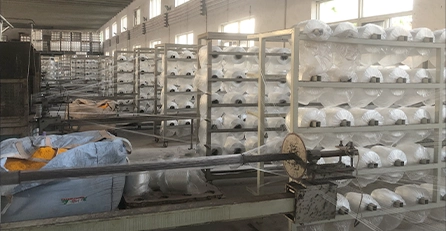The Importance of Using Vacuum Hoses in HVAC Systems for Optimal Performance
The Importance of HVAC Vacuum Hoses
In the world of HVAC (Heating, Ventilation, and Air Conditioning), various components work in harmony to provide optimal indoor comfort. From compressors to evaporators, each part plays a crucial role in the system’s efficiency. Among these components, HVAC vacuum hoses often go unnoticed. However, they play a pivotal role in ensuring the system operates correctly and efficiently.
Understanding HVAC Vacuum Hoses
HVAC vacuum hoses are specialized tubes designed to transport refrigerants and other fluids essential for the system's operation. These hoses are typically made from durable materials that can withstand high pressure and temperature fluctuations. Their primary purpose is to create a vacuum seal, allowing for the smooth transfer of refrigerants between different parts of the HVAC system.
The Role of Vacuum Hoses in HVAC Systems
When an HVAC system is installed or serviced, it is crucial to remove any air and moisture from refrigerant lines. Air can introduce contaminants and moisture into the system, which can lead to decreased efficiency and potential failure. Vacuum hoses facilitate the evacuation process, enabling technicians to create a vacuum within the refrigerant lines.
1. Preventing Contaminations As contaminants can significantly impact system performance, vacuum hoses help ensure that only the desired refrigerants are present in the lines. By maintaining a controlled environment, HVAC systems can function optimally, increasing their longevity and efficiency.
2. Enhancing Efficiency A vacuum-sealed system works more efficiently than one with leaks or air trapped in the lines. By using vacuum hoses during the setup and servicing of HVAC units, professionals can uphold the system’s efficiency, resulting in lower energy consumption and utility bills for the homeowner.
3. Offering Safety Proper handling and maintenance of HVAC systems are critical for safety. Vacuum hoses eliminate the risk of refrigerant leaks, which can be hazardous to both the environment and human health. By ensuring that the system is properly evacuated, technicians can prevent these risks and promote a safer indoor environment.
hvac vacuum hoses

Choosing the Right Vacuum Hoses
Selecting the appropriate vacuum hoses is crucial for the effectiveness of HVAC systems. Here are some factors to consider
- Material Quality The material of the vacuum hose should be robust and durable. Common materials include rubber and vinyl, which are known for their flexibility and ability to withstand various environmental conditions.
- Size and Compatibility Choosing the right diameter is essential to ensure a proper fit with other system components. A mismatch can lead to inefficiencies or leaks.
- Length Consider the length needed for your specific HVAC setup. Longer hoses can lead to additional resistance, so it's crucial to balance length with performance requirements.
Conclusion
While HVAC vacuum hoses may not always be in the limelight, their importance in the heating and cooling industry cannot be overstated. They play a fundamental role in maintaining system efficiency, ensuring safety, and prolonging the life of HVAC units. By understanding their significance and choosing the right hoses, HVAC professionals and homeowners alike can contribute to a more effective and sustainable climate control solution.
Investing in quality vacuum hoses and ensuring their proper use during installation and maintenance can lead to significant benefits for HVAC systems, including improved performance and lower operational costs. Therefore, the next time you consider your HVAC setup, remember the unsung heroes the vacuum hoses that keep everything running smoothly.
-
Unrivaled Performance and Applications of PU Pneumatic Hoses and TubesNewsJun.11,2025
-
The Transparent World of Industrial Tubing and Hosing SolutionsNewsJun.11,2025
-
The Intricate World of Pneumatic Conduits: Tubes and HosesNewsJun.11,2025
-
The Dynamic Landscape of Pneumatic Conduits: Unraveling Key ComponentsNewsJun.11,2025
-
The Diverse Applications and Significance of Transparent PVC TubingNewsJun.11,2025
-
High - Pressure Pneumatic Tubing and Systems: An In - Depth LookNewsJun.11,2025














